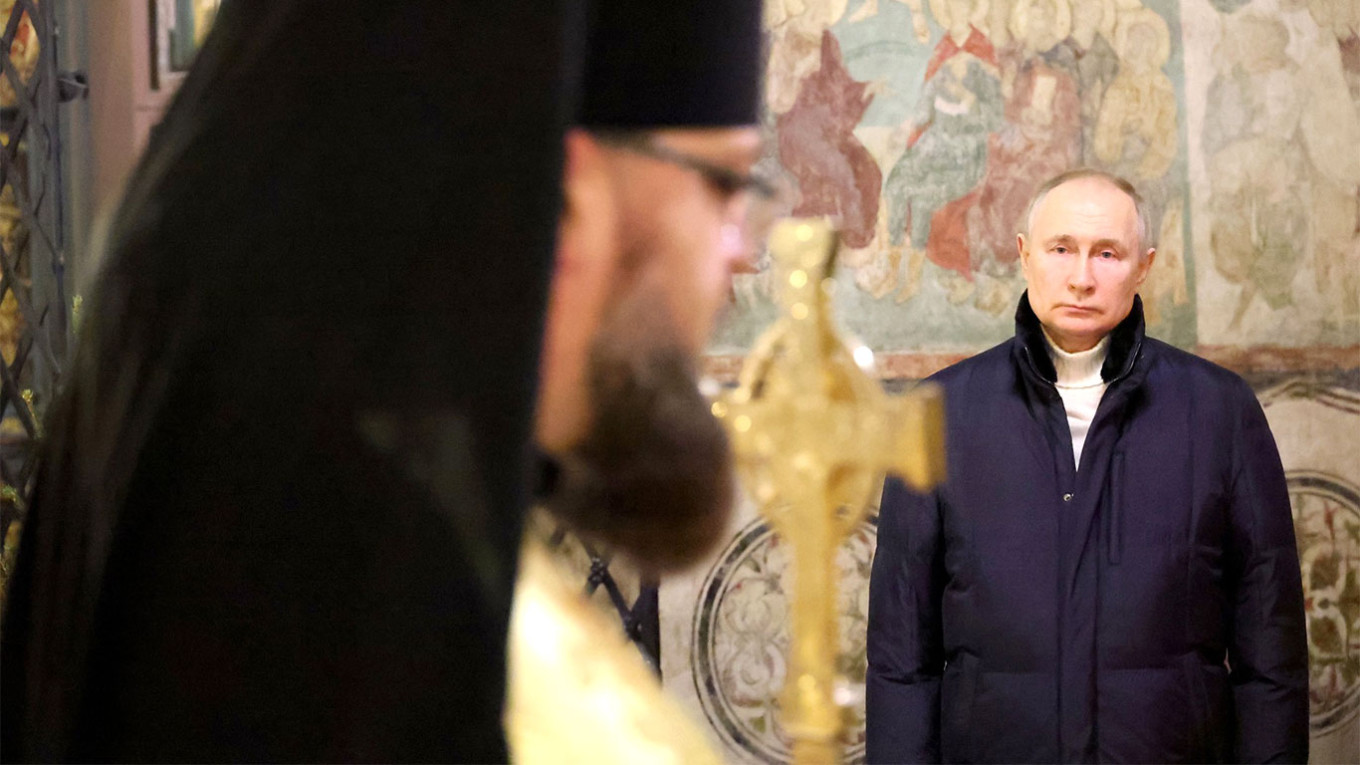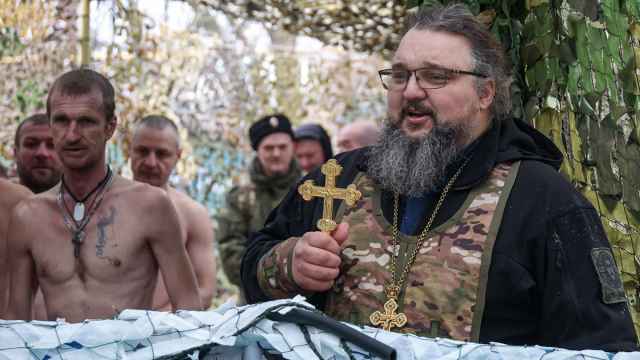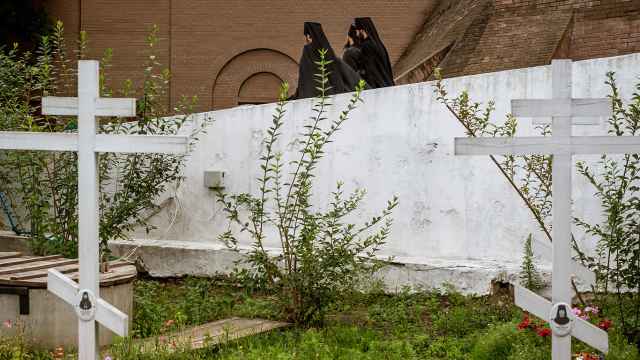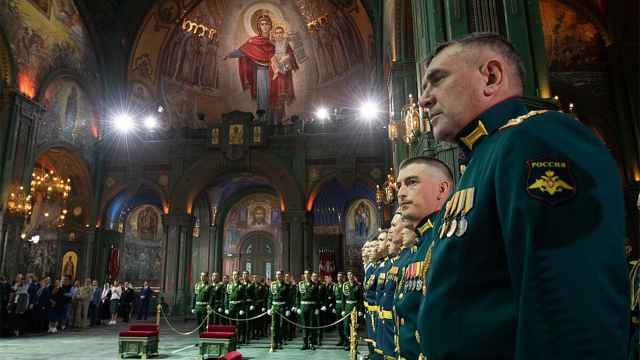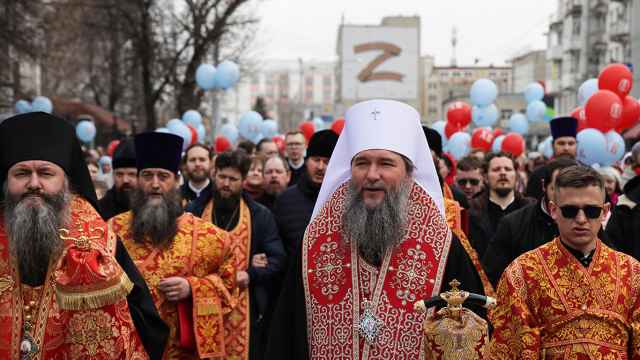The celebration of Orthodox Christmas in both Russia and Ukraine on Jan. 7 provided ample evidence of what the Washington-based Institute for the Study of War has called Russia's weaponization of religion in its propaganda war against Ukraine.
Just as Ukraine's 2013 Maidan Uprising was seen by Vladimir Putin as a personal affront, the 2018 creation of an independent Ukrainian Orthodox Church to replace the Moscow-aligned Ukrainian Orthodox Church Moscow Patriarchate, has not been forgiven by the head of the Russian Orthodox Church, Patriarch Kirill, who was left fearing a domino effect should other regional churches seek to break free of Moscow's historic control.
The fact that until recently the most powerful religious congregation in Ukraine was a church under the control of the Moscow Patriarchate has been used repeatedly by Kremlin propagandists to demonstrate Ukraine's status as an effective vassal state, while its rejection of the Russian-led church has been used to justify the invasion on the grounds that Russia has a duty to protect Orthodox believers in Ukraine from schismatics.
When announcing his recognition of the Donetsk People’s Republic and the Luhansk People’s Republic on Feb. 21, Putin spoke of the need to protect the interests of the Russian Orthodox Church in Ukraine, warning that the Ukrainian government had "cynically turned the tragedy of a church schism into a tool of state policy."
Patriarch Kirill took the president’s lead, and on March 6, he called the war "metaphysical." Since then, the patriarch’s public appearances have tended to include military elements: from presenting an icon to the head of the Russian National Guard to announcing that dying in battle would exculpate all one’s sins.
For its part, the Ukrainian Orthodox Church has attempted to cut all ties with Moscow, ceasing to mention Patriarch Kirill in the liturgy, dismissing pro-Russian bishops, and having its head, Metropolitan Onufriy, publicly condemn the war.
However, these attempts have not prevented the recent search by the Ukrainian authorities of the UOC's churches, monasteries, and offices for pro-Russian materials, nor has it spared several of its bishops from being sanctioned, nor has it stopped the introduction of legislation banning religious organizations with Russian links.
The Ukrainian government continues to see the church as a dangerous mouthpiece for pro-Russian views and a serious threat to national security but has stopped short of attempting to ban it, rightly seeing that as a direct infringement on the freedom of millions.
Shortly before Orthodox Christmas on Jan. 7, Patriarch Kirill issued a call for a 36-hour ceasefire to allow believers to take part in church services in Ukraine. The same evening Putin declared a ceasefire, supposedly submitting to the patriarch's request. Of course, it was Putin who made the decision to call a brief truce, but why did he do so?
The ceasefire pledge was most likely an attempt to convince Western politicians and wider public opinion of both Russia's humanity and Ukraine's bloody-minded refusal to hold peace talks, appealing to the enduring fondness many Europeans have for the famous Christmas truce between the British and Germans troops during World War I.
There may have been no ceasefire in the end — Kyiv rejected Putin's proposal to follow suit, and some Russian units continued fighting — but Christmas in Ukraine saw the UOC hold its first-ever service at Kyiv's Pechersk Monastery, one of the holiest sites in the Eastern Orthodox tradition. The monastery complex, which until the end of 2022 was in the hands of the Moscow Patriarchate, had been returned to the Ukrainian state just days beforehand.
The event was of enormous symbolic importance to Ukrainians, even prompting President Volodymyr Zelensky to mention it during his Christmas address. "I was glad to see how many people, how many of our soldiers, came to the church service today at the Kyiv Pechersk Monastery, the sacred place that is one of the sources of the Ukrainian cultural tradition. It is very significant that a true prayer for Ukraine was heard at the monastery today, and that it will be heard again."
Patriarch Kirill unsurprisingly accused Kyiv of carrying out religious persecution and compared the move to the Soviet-era destruction of churches and the murder of priests. In a sermon on Jan. 8, the patriarch said that "the same sort of devilry as that seen in Russia after the revolution" was now afoot in Ukraine.
Kirill has long identified the current Ukrainian government with the "godless regime" of the Soviet Union, and refers to supporters of the Russian Orthodox Church in Ukraine as "martyrs" whose protection dovetails effortlessly with other such Kremlin-pushed ideological touchstones such as "desatanization," "holy war" and "jihad".
As large crowds gathered at Kyiv's Pechersk Monastery on Jan.7, Vladimir Putin spent Christmas standing alone in a completely empty Church of the Annunciation in the Kremlin — the traditional church of the Russian Tsars.
While the tsars were accompanied by their families and ceremonial entourages when attending services in the Kremlin churches on holy days, Putin has progressively turned the liturgy, a church service in which the community traditionally comes together, into a private ceremony performed for one person.
Watching videos of Christmas liturgies filmed over the past two decades, you can see physical evidence of the Russian president's growing isolation with every passing year. Accompanied by fewer and more physically distanced people each Christmas, the meticulously vetted parishioners ultimately disappear altogether, until Putin finally finds himself standing alone in complete solitude.
A Message from The Moscow Times:
Dear readers,
We are facing unprecedented challenges. Russia's Prosecutor General's Office has designated The Moscow Times as an "undesirable" organization, criminalizing our work and putting our staff at risk of prosecution. This follows our earlier unjust labeling as a "foreign agent."
These actions are direct attempts to silence independent journalism in Russia. The authorities claim our work "discredits the decisions of the Russian leadership." We see things differently: we strive to provide accurate, unbiased reporting on Russia.
We, the journalists of The Moscow Times, refuse to be silenced. But to continue our work, we need your help.
Your support, no matter how small, makes a world of difference. If you can, please support us monthly starting from just $2. It's quick to set up, and every contribution makes a significant impact.
By supporting The Moscow Times, you're defending open, independent journalism in the face of repression. Thank you for standing with us.
Remind me later.



